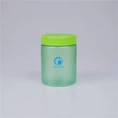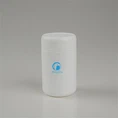Fish oil is one of the most popular dietary supplements today, mainly because it is rich in Omega-3 fatty acids (EPA and DHA). These nutrients support heart and brain health while also helping the body reduce inflammation. However, when you step into a store or browse online, you'll find endless brands and prices. So how do you know if the fish oil you buy is really worth the money? Let's break down the key factors that define a high-quality fish oil.
1. Safety Comes First: Purity Backed by Testing
The ocean is not free from pollution, and fish can accumulate heavy metals or environmental toxins. If fish oil is not properly purified, these harmful substances may end up in your supplement. Reliable brands always provide third-party lab test reports proving that their fish oil is pure and free from contaminants. This is the first and most important step in choosing safe fish oil.
2. Don't Just Look at Total Oil, Focus on EPA & DHA
Many products highlight "1000mg of fish oil per capsule," but this can be misleading. What really matters is the amount of EPA and DHA inside. High-concentration fish oil means you get the same dose of Omega-3 with fewer capsules, making it more efficient and cost-effective in the long run. Ideally, choose fish oil with at least 500mg of combined EPA + DHA per serving.
3. Absorption Matters: Look for TG Form
The molecular form of fish oil affects how well your body absorbs it. Triglyceride form (TG form) is closer to natural fish oil and is more easily absorbed and metabolized by the body. On the other hand, Ethyl Ester (EE) form is common in cheaper or concentrated products, but it has lower bioavailability. Always check the label and choose TG form whenever possible.
4. Freshness Determines Effectiveness
Fish oil is highly sensitive to oxidation. Once it goes rancid, not only does it lose its benefits, but it may also harm your health. Choose products with a recent production date, airtight packaging, and added natural antioxidants such as Vitamin E. If you open a bottle and notice a strong, unpleasant fishy odor instead of a light ocean-like scent, the oil may already be oxidized.
5. Trust International Certifications for Extra Assurance
If you're not confident in judging fish oil quality yourself, look for recognized third-party certifications. Labels like IFOS (International Fish Oil Standards), USP, or NSF guarantee that the product has been tested for purity, freshness, and accurate labeling. This provides extra peace of mind when choosing the right fish oil.
Conclusion
A trustworthy fish oil must check five boxes: pure and safe, high in EPA & DHA, easily absorbed (TG form), fresh, and certified. Spending a little time researching before buying ensures you choose a product that truly supports your health.
Who We Are
If you are a brand owner in the nutrition, supplement, or food industry looking for safe, compliant, and customizable plastic packaging (such as fish oil bottles, capsule bottles, or food jars), Mingda Packaging is here to provide professional solutions. Feel free to contact us to find the best packaging for your products.
















